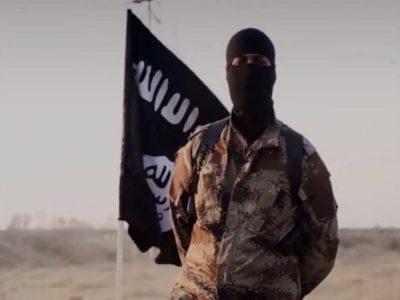
Five families slipped away from southern India and moved to ISIS territory in Afghanistan
The aspiring jihadists began leaving here quietly last May, slipping away in twos and threes to avoid suspicion.
By the time their relatives realized they were missing, five families some with small children had left their comfortable bungalows and jobs as doctors and businessmen to make the perilous journey to Islamic State-held territory in Afghanistan.
Authorities believe that 19 adults and three children settled in Nangahar province, on the mountainous border with Pakistan. Their departure has raised alarms about the Islamic States reach in India as well as growing extremism in Kerala, a southern state with deep ties through migrant workers to the Persian Gulf.
Two of the Keralites have been killed by drones in Nangahar, including one as recently as April 11, family members say. Then, on April 13, U.S. forces dropped a Massive Ordnance Air Blast bomb on a cave complex where militant commanders were believed to be hiding.
In the ensuing devastation, 13 Indian nationals were among the 94 who died, Afghan authorities say, but whether any of the Indian victims were from the Kerala cell has not been determined. Families have hope a voice message one son sent to his father last week said they had all survived.
Nevertheless, most have accepted that they will never see their relatives again.
Let them die in a bombing! said Abdul Rahman Hamza, 66, the devastated father of a doctor and a school employee who took their pregnant wives and his 2-year-old grandson to the remote Afghan region. What they are doing is not Islamic. The real Islam doesnt promote terrorism.
An estimated 100 Indians have left to fight for the Islamic State in Syria, Iraq and elsewhere, according to Ajai Sahni, executive director of the Institute for Conflict Management in New Delhi a fraction of the number of foreign fighters who have taken up the cause in the past two years.
The Islamic State is considered less of a threat to India than terrorist organizations based in neighboring Pakistan, such as Lashkar-e-Taiba, the group responsible for the siege of Mumbai in 2008, according to Sahni.
Still, there are worrying signs: At least 10 suspected Islamic State activists were detained in a six-state sweep Thursday. And after a suspected militant was killed in a shootout with police last month, a pro-Islamic State channel on the Telegram messaging service exhorted Muslims to carry out attacks in India, according to a report from the SITE Intelligence Group. Kill them, Stab them, hit them with a car, Use guns, Weapons anything you have. And make them weak, Shed their blood like water, the message said.

The sun-dappled state of Kerala a tourist haven of meandering backwaters and shimmering beaches has long been one of Indias most diverse and educated states. But in recent decades, a more extreme form of Islam has taken root, authorities say, spurred by migrant workers returning from the Middle East.
An estimated 2.2 million Keralites work in Persian Gulf nations; they sent home $10 billion in remittance money in 2016, according to the Center for Development Studies in Thiruvananthapuram, Keralas capital.
Source: Washington Post






You must be logged in to post a comment.